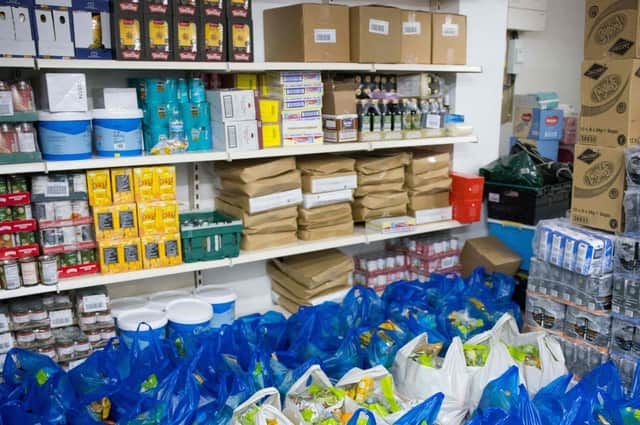RACHEL McGRATH COLUMN: Food aid is the priority in 'levelling up'


National and local government must listen to the local intelligence on need by civil society and charities to shape effective short-term and long-term policy drives to levelling up.
Furthermore, there is a number of prescient issues to be addressed in the immediate future to tackle poverty in Northamptonshire.
Advertisement
Hide AdAdvertisement
Hide AdOnly this week, the Food Foundation has published a survey highlighting alarming levels of food insecurity within local communities.
It reports 5.7 million adults and 2.5 million children live in households that have experienced food insecurity between August 2021 and January 2022.
It reports that the cost of living crisis has meant that 62% of households have experienced higher energy bills this winter, and prices are set to rise further in April.
In real terms this means some residents having to sharply cut back on the quantity and quality of food in order to afford essentials.
Advertisement
Hide AdAdvertisement
Hide AdThis has a knock-on effect in terms of health and wellbeing as the impact of not being able to afford a healthy diet has consequences, especially for children in food-insecure households, increasing the risk of diet-related illness, poor growth and shorter lives.
Thanks to previous partnerships in the county, such as Northamptonshire Food Poverty Network, who campaigned on tackling food poverty alongside a number of charities and alliances, there is now an official national measurement of household food insecurity, introduced in 2019, ensuring robust monitoring of the issue and helping guarantee government is held to account on effective policy measures for tackling hunger in local communities.
During the public health crisis, two new food aid alliances emerged, covering the north and west of Northamptonshire.
These networks will be key in tackling localised food poverty and effective partners for local authorities, within which to share community intelligence and deploy resources to provide a safety net.
Advertisement
Hide AdAdvertisement
Hide AdNorthamptonshire Community Foundation ran a series of community conversations across 2020 and 2021 in response to the pandemic.
The priority issues that must be tackled that relate to the levelling-up agenda include supporting the establishment of a Poverty Truth Commission so that people impacted by local policy have a voice to shape and change it; supporting low income communities; and the introduction of a living wage to reduce in-work poverty.
To do that meaningfully, the local charitable sector also requires increased funding to continue building the safety net to lift families and individuals out of poverty.
Projects and services that provide food aid, as an example, urgently require sustainable funding so they can continue to work with the most vulnerable residents in Northamptonshire, who may be struggling to access affordable and nutritious food during this cost-of-living crisis.
Advertisement
Hide AdAdvertisement
Hide AdIn the longer term, in order to deliver a robust levelling-up agenda, government needs to deliver better jobs and pay for people on the lowest incomes through investment in skills, childcare, local transport and affordable housing.
This has been backed up by a number of national anti-poverty campaign responses, such as the Joseph Rowntree Foundation and the Child Poverty Action Group.
It is therefore disappointing that there is no new funding being announced within the policy white paper.
Additionally, and perhaps crucially, its impact needs to be measured against its competency in reducing poverty across our towns, cities and villages.
And for that to happen, the words need to translate into real resources and more localised decision making outside of Westminster.